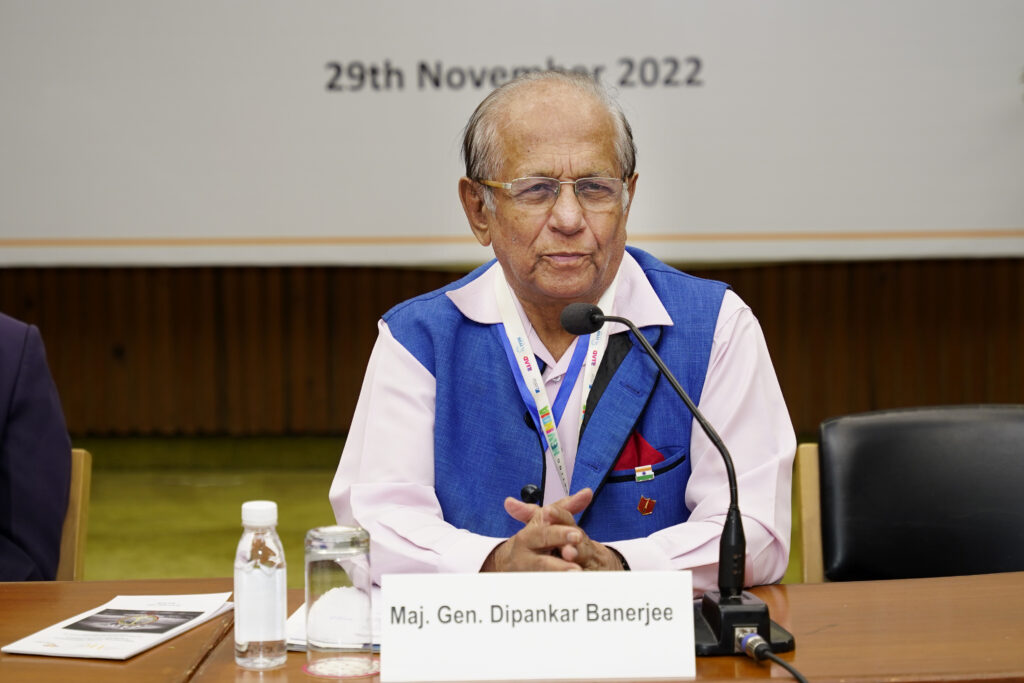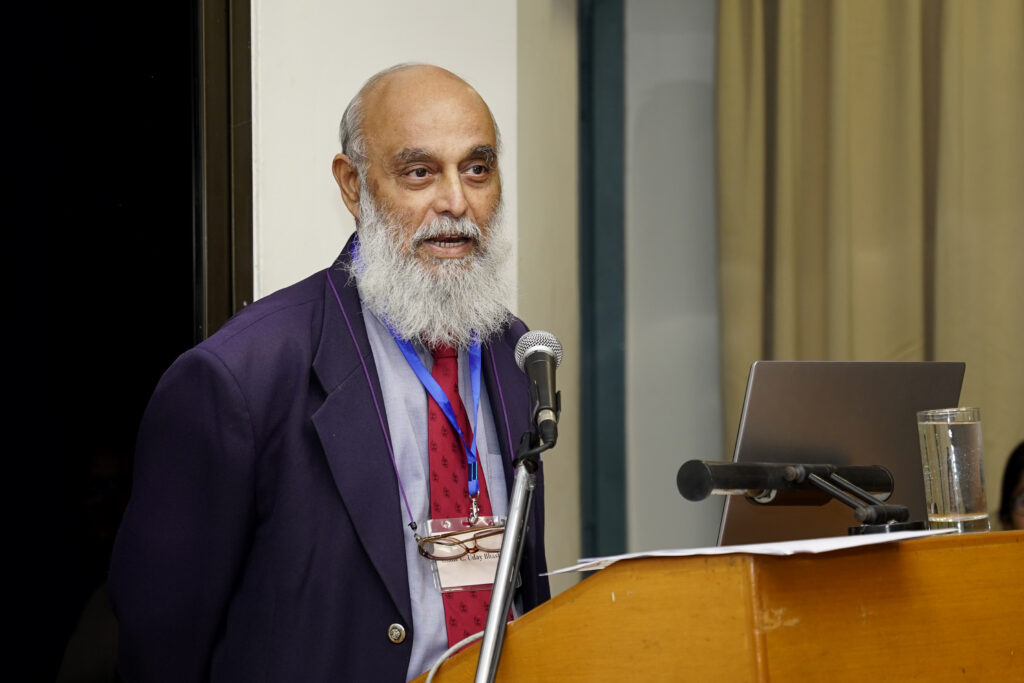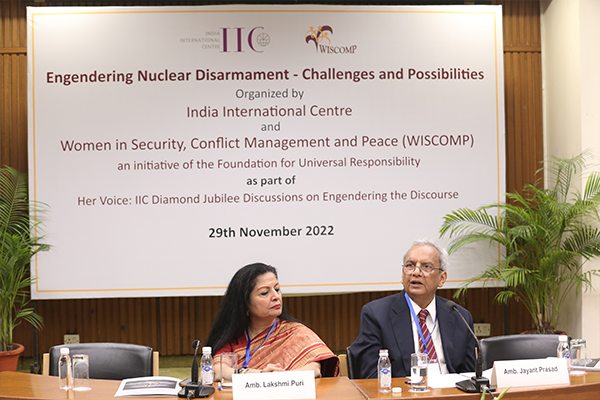
The ongoing war in Ukraine signalling a possible recourse to weapons of destruction has opened Pandora’s box of strategic dilemmas in the new world (Dis)order. As the G20 Chairperson, what steps can India take to contain further conflagration?
In November 2022, WISCOMP organized a day-long conference foregrounding the voices of women in nuclear disarmament. The speakers addressed several concerns tracing the trajectory of India’s disarmament journey, normative contours and practical challenges of disarmament, implementation of the Women, Peace, and Security agenda, and the role of women’s movements in promoting peace. The session brought together diverse stakeholders such as former diplomats, strategic studies experts, academics, and young scholars.
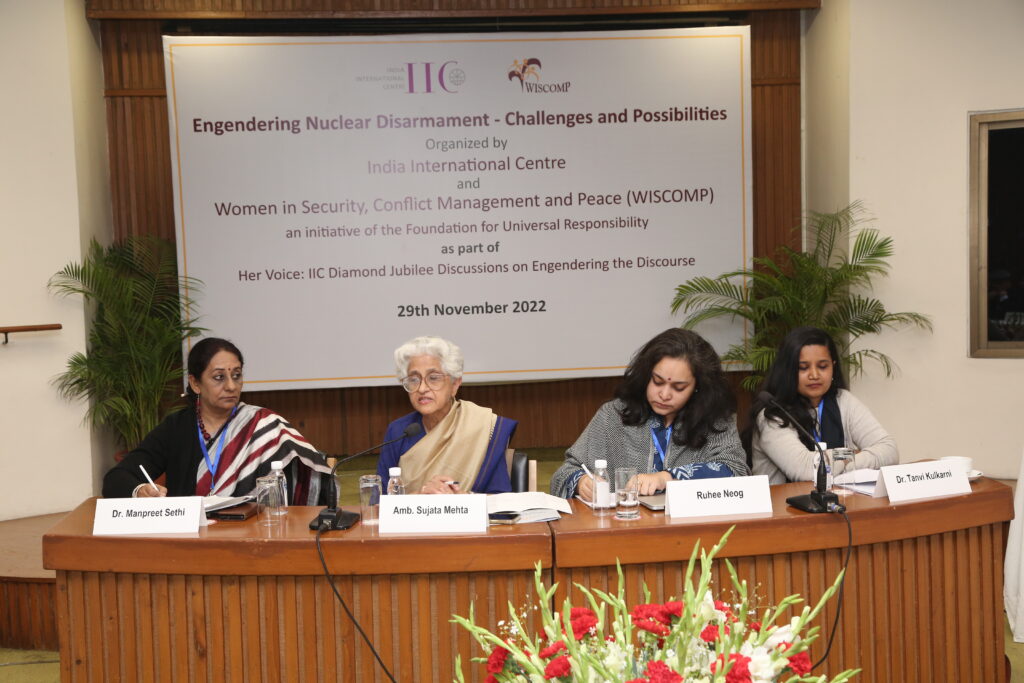
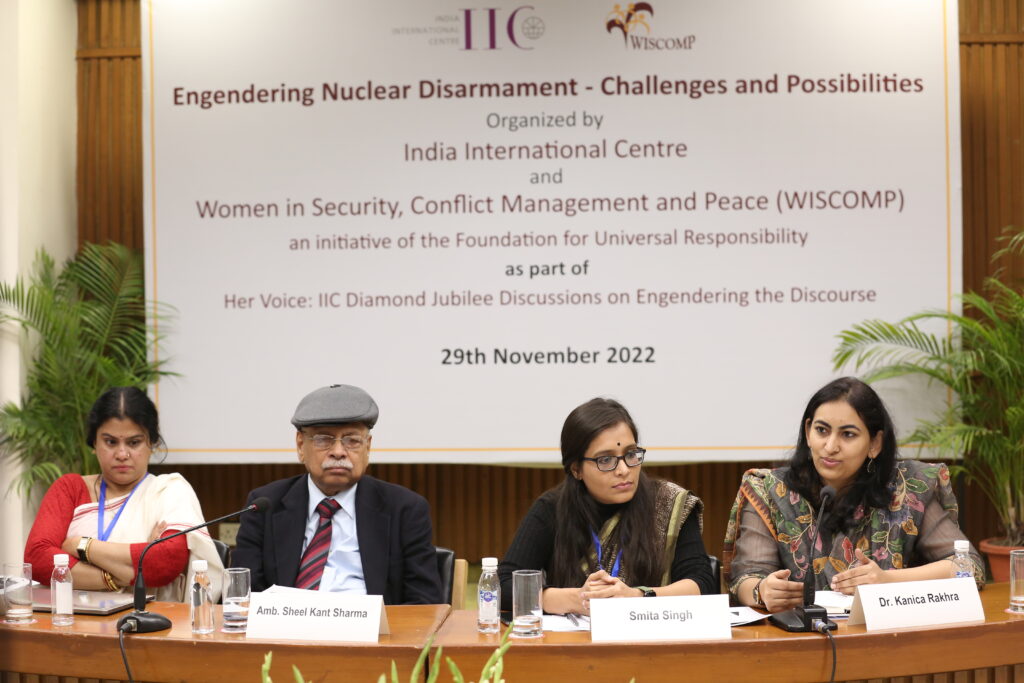
Snippets from the session
Amb. Jayant Prasad- “India has forgotten about its continued commitment to the goal of a nuclear weapon free world, which was an intrinsic part of the 2003 CCS decision on India’s nuclear doctrine.”
Amb. Sujata Mehta- “Nuclear disarmament does not occur when Great Powers decide. It has to be a voluntary activity, multilaterally negotiated, universal, and verifiable.”
Amb. Lakshmi Puri- “We need to promote intensive research by women about women’s role, needs and concerns in disarmament peace movements.”
Commodore C. Uday Bhaskar- “Let Nagasaki be the last time!”
Dr. Meenakshi Gopinath – “En-Gendering must go beyond numbers to encompass the assumptions and ways in which the world defines, makes and implements control over weapons. It means asking – who controls the weapons? Who is affected by it?”
